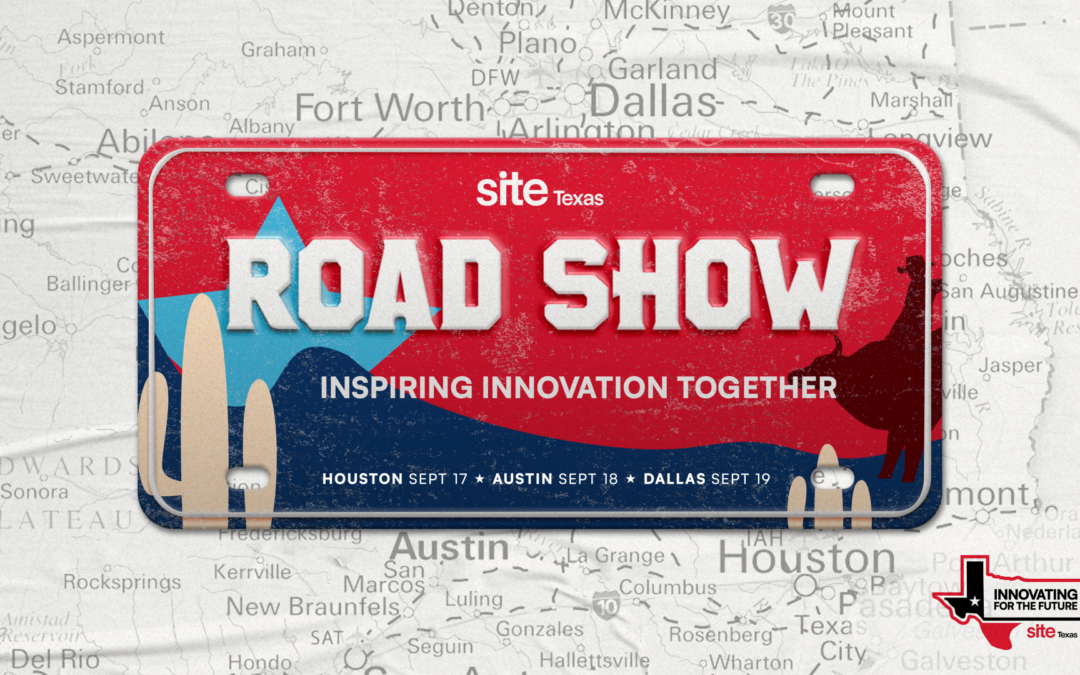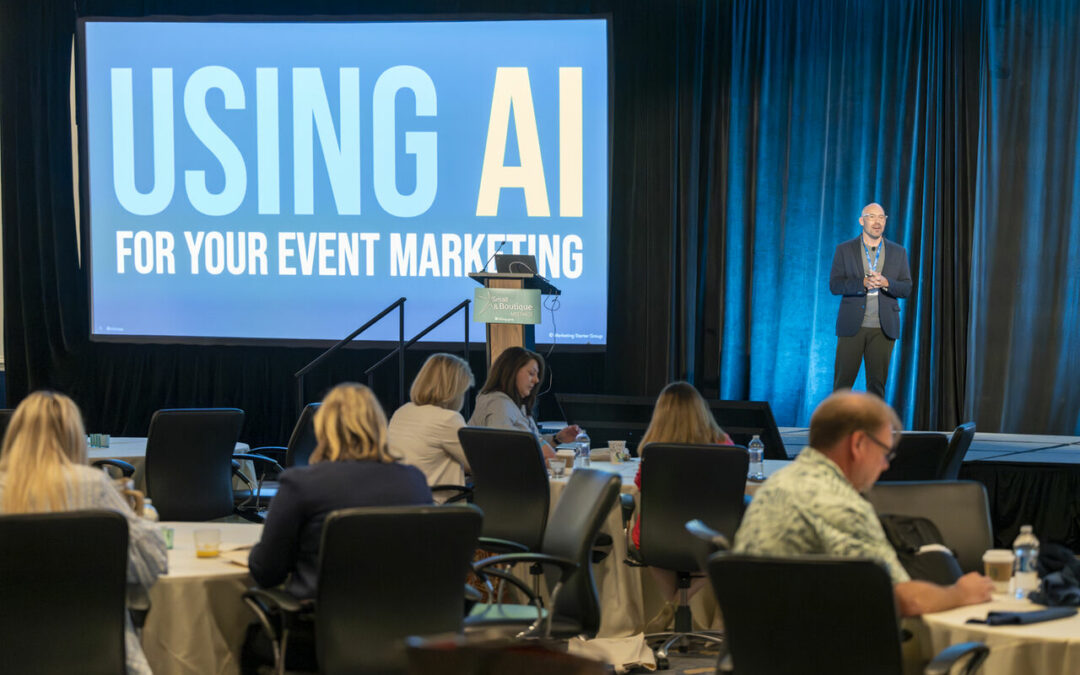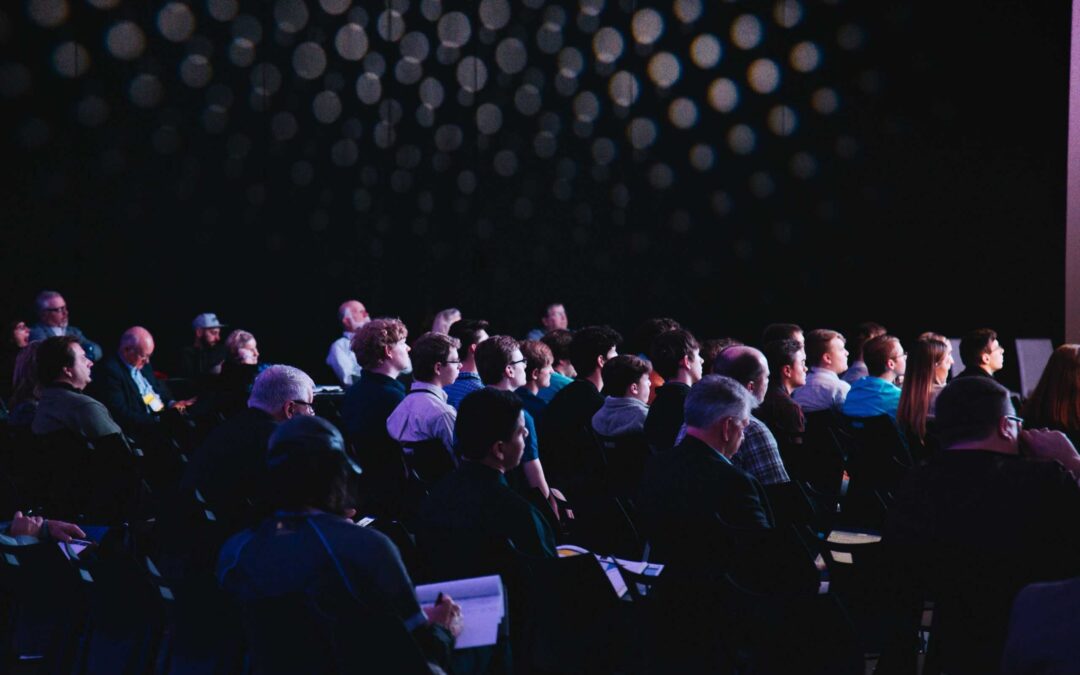This past April, I took the stage at the Northstar Meetings Group Small & Boutique meetings show just outside of Houston. The room was filled with event and meeting planners from all over the country who were eager to learn how AI was going to change the way they plan and market events forever.
I showed them how to embrace their AI fears, build a simple plan, and get started using AI to free up their valuable time to deliver a better experience for attendees. We discussed how planners now have a powerful tool at their disposal to streamline processes and enhance outcomes throughout the event lifecycle and put their focus on making their event or meeting awesome!
One attendee sent this wonderful note to me post-event: “I wanted to share that your AI presentation has been a point of conversation for me! I talk about and ask everyone I encounter now if, when, and how they are using AI. I’m younger and newer in the Meetings/Events world and I’ve never used even an ounce of AI. Thank you for opening the AI world to me, I’m not sure if I would have come around to it any time soon without your presentation.”
What a testimonial! She was clearly motivated and inspired ‒ which are the top goals of any professional speaker. To get other planners feeling the same way about using AI, I wanted to share the three phases that I presented at the show:
Pre-Event Phase
Before the event, AI can assist planners in making data-driven decisions for planning and marketing. By analyzing vast datasets, AI algorithms can recommend optimal venues based on factors such as location, accessibility, and attendee preferences. Wouldn’t it be nice to know the number before you know the numbers? Well, predictive analytics further empower planners to forecast attendee turnout accurately, enabling better resource allocation and budgeting.
AI tools also allow planners to craft targeted marketing campaigns tailored to individual attendee preferences, maximizing engagement and conversion rates. This can be deployed in promotional social media posts, event websites, and even AI-based chatbots that facilitate questions to increase conversions. But, the #1 thing during the pre-event phase, is how generative AI can free up a ton of time in creating content, like blog posts, to market the event or create detailed agendas or even speaker summaries.
On-Site Phase
Planners can focus more on the attendee experience during the event with AI-powered tools that radically increase operational efficiencies. Automated registration and check-in processes powered by AI reduce wait times and minimize errors, enhancing the overall attendee experience. Real-time data analytics provide valuable insights into attendee behavior and session attendance, allowing planners to make informed decisions on the fly to optimize event dynamics. There will be less of a need to rely on volunteers when chatbots and virtual assistants can offer instant support to attendees, answering inquiries and providing directions seamlessly.
One of the creepiest use cases I have seen is using AI-powered facial recognition software to know who is on-site and who is not supposed to be there. This would require the use of a venue’s camera infrastructure, but it sure would be a great way to keep attendees safe while also thwarting badge swappers.
Post Event Phase
Now that event high is over, wouldn’t it be nice to kick back instead of being inundated with post-event tasks? AI can help with that! AI analysis can enable planners to measure success metrics accurately and identify areas for improvement. AI-driven analytics platforms aggregate and analyze post-event data, including attendee feedback and social media mentions, providing valuable insights for future event planning, all of which can easily be compiled into a report, and you and your team can debrief on and use for next year’s planning.
It gets even more fun with personalized follow-up strategies based on AI segmentation and targeting that can further nurture attendee relationships, fostering long-term loyalty. You can use tools like ChatGPT once again to help you create post-event surveys for attendees, sponsors, and vendors instead of staring blankly at a Google Form guessing what questions to ask.
The Sum
AI is a game-changer for event and meeting planners, they just need to try it out and start small By leveraging AI throughout the event lifecycle, planners can innovate, iterate, and excel in delivering memorable and impactful events for attendees. Soon, I will be releasing a guide on the exact steps to take and AI tools to try when planning and marketing your next event. Stay tuned!



